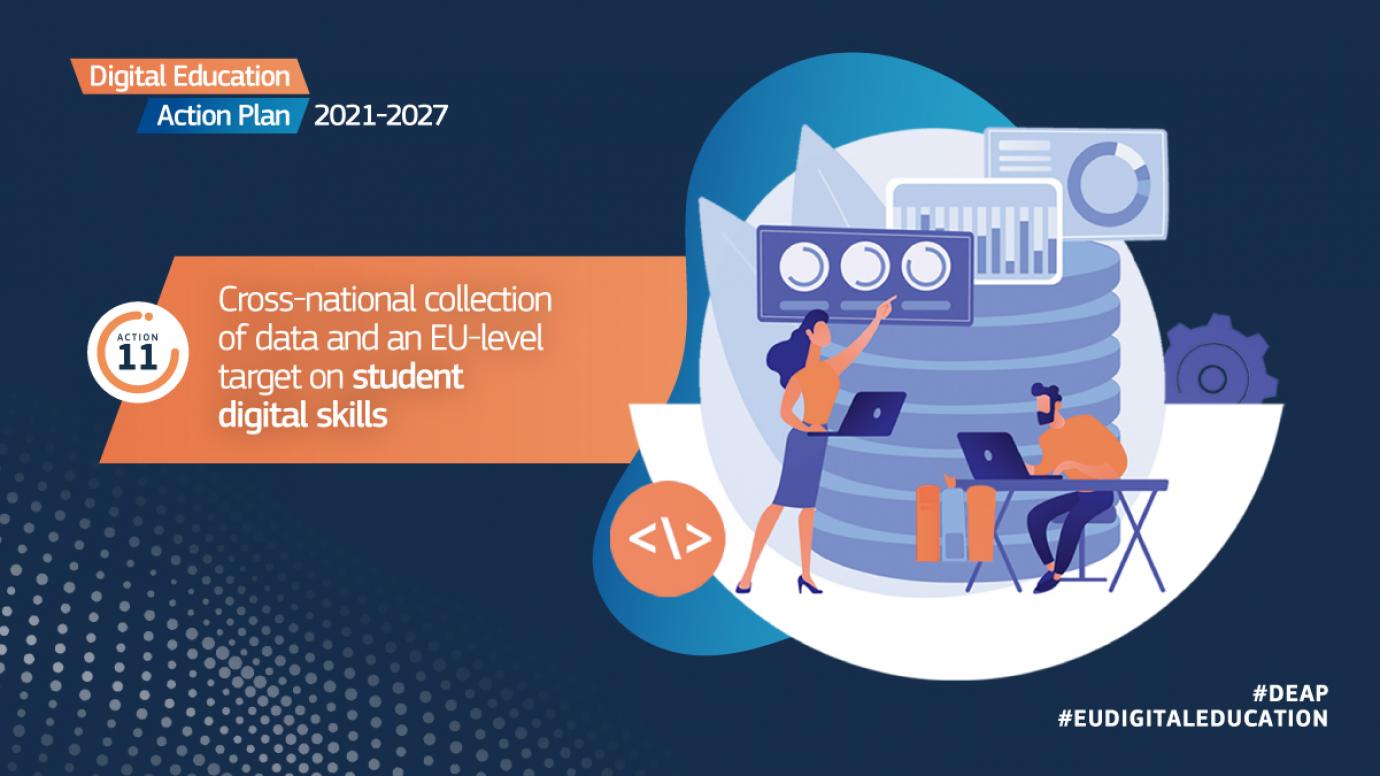Cross-national collection of data and an EU-level target on student digital skills
Basic digital skills are a prerequisite for all citizens to participate effectively in today’s increasingly digital world. The COVID-19 pandemic has highlighted the importance of basic and advanced digital skills for sustaining our economies and societies.
Contrary to the common view of today’s youth as a generation of 'digital natives’, results from the International Computer and Information Literacy Study (ICILS) indicate that young people do not develop sophisticated digital skills just by growing up using digital devices.
In contrast to other basic skills, such as reading, mathematics and science, the availability of cross-national data on the current level of digital skills of young people in the European Union (EU) is limited.
More data is needed to allow us to better understand why differences in skills levels arise and to allow the Union and its Member States to formulate effective actions to address these gaps.
Objectives
To meet these challenges, the European Commission supports the collection and analysis of comparable data on the digital skills of young people across Europe.
An EU-level target on digital skills was adopted in the 2021 Council Resolution on a Strategic Framework for European Cooperation in Education and Training Towards the European Education Area and Beyond (2021-2030).
The Resolution calls for the share of low-achieving eighth-graders (13-year-olds) in computer and information literacy to be reduced to below 15% by 2030. Performance in computer and information literacy will be measured using data from ICILS.
Enhancing the cross-national collection of data will improve our understanding of digital education tendencies both at the European and Member State levels.
Supporting Member States in gathering comparable data on developments in digital education will help national public administrations to keep track of skill levels among young people throughout time and across borders and to strengthen the basis for evidence-based policy development.
Key activities
- financially support the participation of EU Member States and third countries associated to the Erasmus+ programme in ICILS 2023
- monitor progress towards the EU-level target on students’ digital skills (the reduction of low-achieving eighth-graders in computer and information literacy to below 15% by 2030) using data from ICILS
- annual reporting on digital skills in the Education and Training Monitor
Expected results
- expanded coverage of internationally comparable data on digital skills across EU Member States and at the European level supporting evidence-based policymaking
- a more accurate picture of the state of young people’s digital skills and the factors influencing the acquisition of digital skills within the EU
Timeline
- January - December 2023 – main ICILS 2023 data collection, International Association for the Evaluation of Educational Achievement (IEA)
- October - December 2024 – publication of the international results from ICILS 2023 (IEA)
- January - March 2025 – release of ICILS 2023 international database (IEA)
Funding
This action is funded by the EU’s Erasmus+ programme.
Get in touch
If you are interested to know more about this action, get in touch with us by email at EAC-UNITE-A4@EC.EUROPA.EU.
Follow EUDigitalEducation on Twitter for latest news and developments on this action and the whole Digital Education Action Plan.



